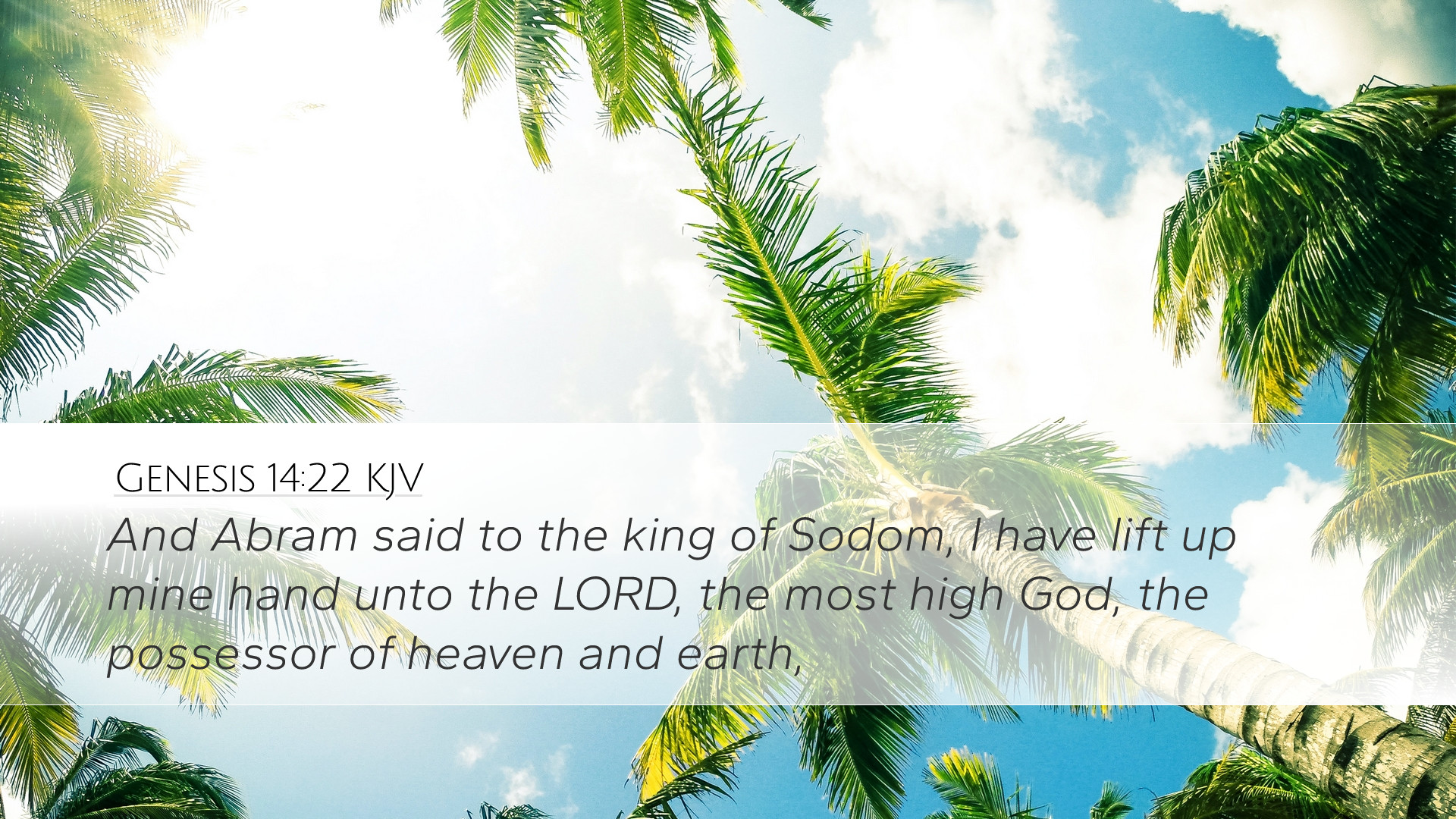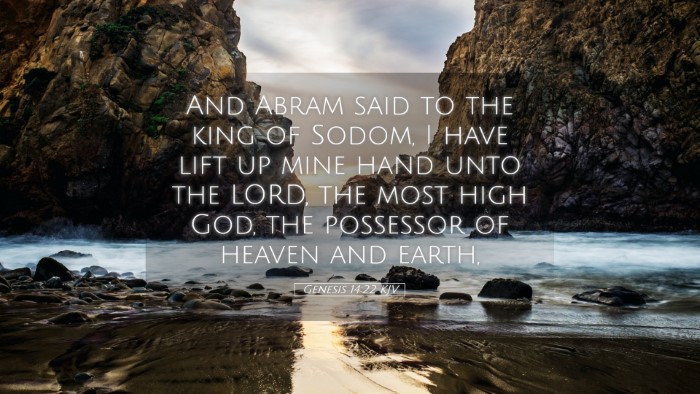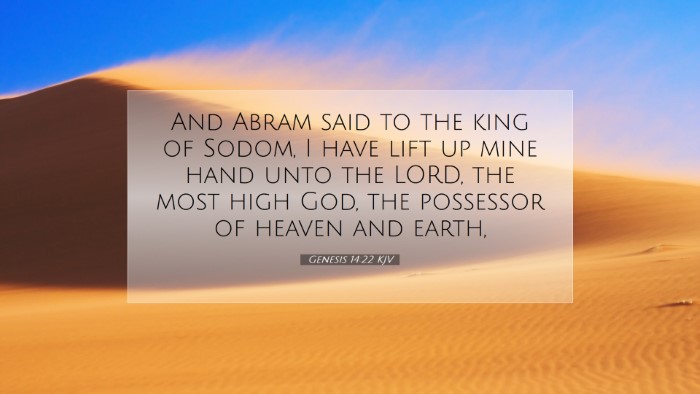Commentary on Genesis 14:22
Verse Text: "But Abram said to the king of Sodom, 'I have raised my hand to the Lord, God Most High, Creator of heaven and earth, and have taken an oath.
Introduction
This verse, nestled within the narrative of Abram's encounter with the king of Sodom after the victory over Chedorlaomer, illustrates a profound moment of faith and commitment. Abram distinguishes himself from other leaders by declaring his loyalty to God, emphasizing the spiritual foundation of his life and actions. The commentaries of Matthew Henry, Albert Barnes, and Adam Clarke provide rich insights into the implications of Abram’s oath and the broader theological themes encapsulated in this text.
Contextual Background
To appreciate the significance of Abram's declaration, it is essential to consider the historical and cultural context. After a successful military campaign rescuing Lot, Abram confronts the king of Sodom, who offers him wealth as a reward. Abram’s response reflects a critical choice: to reject worldly gain in favor of divine allegiance.
Matthew Henry's Insights
Henry emphasizes that Abram's refusal of the king’s gifts is indicative of his faithfulness and integrity. He remarks that Abram's heart was not set on the riches that the world offers, but rather on his relationship with God. Abram’s oath to the 'God Most High' signifies his recognition of God’s sovereignty over all creation, marking a pivotal moment of spiritual commitment.
- Divine Authority: Abram acknowledges God as the Creator of heaven and earth, an affirmation of God's ultimate authority and power over the entire universe.
- Separation from Worldliness: By refusing the gifts of Sodom, Abram sets a precedent for believers, suggesting that spiritual integrity must take precedence over material gain.
Albert Barnes' Commentary
Barnes offers a more detailed exploration of the implications of Abram's oath. He notes that by invoking the name of the Lord, Abram is not merely making a statement; he is entering into a covenant relationship grounded in trust and faithfulness. This is a profound reminder to the readers that one’s actions should align with one’s professed beliefs.
- Faith over Fortune: Barnes illustrates that Abram’s choice embodies a vital lesson on prioritizing one’s spiritual life over transient temporal benefits.
- Recognition of God's Providence: The act of raising his hand to God signifies surrender to divine providence, affirming that God is the source of all blessings.
Adam Clarke's Perspectives
Clarke approaches this passage with a theological lens, highlighting Abram's role as a mediator between God and man. He underscores the significance of Abram's vow as a testimony to the principle of divine governance in the affairs of humanity. Clarke suggests that this moment also reveals the faith that would characterize Abram’s descendants.
- Symbolism of the Oath: Abram’s raising of his hand symbolizes both an act of worship and a declaration of allegiance to God.
- Prefiguration of Christ: Clarke draws parallels between Abram's rejection of Sodom's treasures and the greater sacrifice of Christ, who likewise renounced worldly power for the sake of divine mission.
Theological Implications
This encounter has far-reaching theological implications, calling believers to ponder their own affiliations with the world versus their commitment to God. Abram's decisions reflect the heart of discipleship—faithfulness to God often requires the courage to turn away from the allure of worldly success.
Faithfulness in Leadership
The choice made by Abram serves as a template for leaders in both religious and secular spheres. Faithful leadership entails reliance on God rather than manipulative or deceitful means to attain success. This principle holds particular relevance for contemporary pastors, theologians, and all who seek to serve in positions of influence.
Spiritual Warfare and Human Choices
In the broader narrative, the conflict with Chedorlaomer represents spiritual warfare, where human choices play a critical role. Abram’s commitment to God amidst worldly temptations invites reflections on the nature of spiritual battles all Christians face.
Conclusion
Genesis 14:22 is not merely an isolated historical account but a profound declaration of faith that resonates throughout Scripture. Abraham's response to the king of Sodom encapsulates a commitment that prioritizes spiritual fidelity over material gain. The insights from Matthew Henry, Albert Barnes, and Adam Clarke collectively enrich our understanding of this passage, inviting a deeper exploration of how we, too, can raise our hands to the Lord in a society that often challenges our values.
Let this passage inspire you to evaluate your own commitments and allegiances, discerning how God calls you to live faithfully in a world overflowing with distractions. May we all seek the courage that Abram displayed, affirming our reliance on the 'God Most High' in every aspect of our lives.


